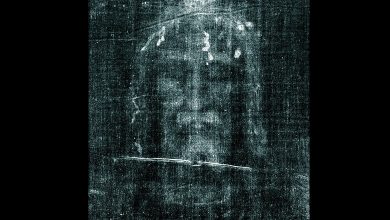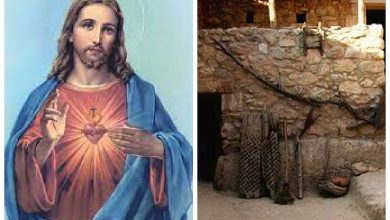What can we learn from the merchants being driven out of the temple by Jesus?

When we first learn about Jesus, we typically see Him as a kind, benign man, full of love and patience, eager to assist people… Jesus, on the other hand, understands how to be enraged. Beware of anyone who was in its way if this was the case! The well-known story of the temple traders gives us an unusual picture of Jesus.
When Jesus arrived at the house of God, he saw that there were merchants there. He drives them away forcefully, even overturning their booths, enraged. Isn’t it surprising? What is the best way to comprehend this passage? Was Jesus an overbearing figure? Isn’t it possible that he harmed others and therefore committed a sin? What can we learn from this episode?
The Gospel of John contains this well-known full story. When Jesus arrives in Jerusalem, he prays in the temple. When he comes, he is startled to discover pigeon merchants and money changers within the temple of God rather than in the market square. Then, in a fit of rage, Jesus overturns tables and chairs to drive these merchants out before declaring:
“Get out of here with it!” It is the home of my Father. “Do not turn it into a trade house.” (John 2:16)
For the sole reason that they had transformed the temple into a commercial venue, Jesus did not hesitate to throw out the merchants and demolish their exhibits! Although his attitude may seem unexpected, we read that Jesus was struck with holy rage, a rage to protect the interests of God’s Kingdom, anger at the disregard for God’s principles:
“The disciples then recalled a verse from the Bible: The love I have for your home, O God, is a fire that burns me.” (John 2:17)
Many church structures have lost their “holy” quality to the point that Christians do anything and everything there. We have little regard for God’s home. We travel there to see our brothers and sisters and have fun, sometimes forgetting that we are at a place where God is meant to be welcomed!
God intended the church to be a place where His children might gather, encourage one another, and pray for one another, as it was in the early church (Acts 2:42). Unfortunately, we can see that God is no longer the center, pillar, or foundation of our churches, which have turned into profitable companies and places of entertainment. At the same time, they should be first and foremost places of prayer and sharing!
This text also demonstrates how extreme Jesus was when it came to sin. Jesus was gentle and modest in spirit, but when God was offended, he became enraged. His attitude reveals something surprising: he could hang around with sinners all day, yet he couldn’t tolerate sin in his Father’s home. This is unsurprising, given that God has always ordered his people to be holy (Leviticus 1:26).
Jesus desires for us to be pure and sin-free! It’s a zero-tolerance policy when you know His Word! God will always be tougher on those of us who know his law and commandments than on those who do not, since knowledge creates accountability!
For this reason, James advises having a small number of instructors since they will be evaluated more harshly (James 3: 1). As a result, we Christians have no legitimate explanation for our sins since we know God’s Word. We should not be shocked if we pay the price for our willful disobedience since the Bible says that no one may laugh at God (Galatians 6: 7).
Everyone in the temple knew the Lord’s Law! They were certain it was a holy and sacred location. That didn’t stop people from ignoring it and converting God’s home into a market! When we deliberately commit evil, we should anticipate the same ruthlessness from Jesus!
“He who understands how to do the correct thing but does not do it commits a sin.” ( James 4:17)
The temple merchants teach us the importance of sanctification in this episode! Many Christians have lost their fear of God, and many churches are more concerned with making money than winning souls!
We must return to the true gospel and cease compromising, for we shall be held accountable sooner or later! We must regain the fear, respect, and regard we once had for God. If we do not want to see the wrath of God fall down, as it did, the church with a lowercase “c” must return to its original purpose, and the church with a capital “c” must walk in sanctification.



